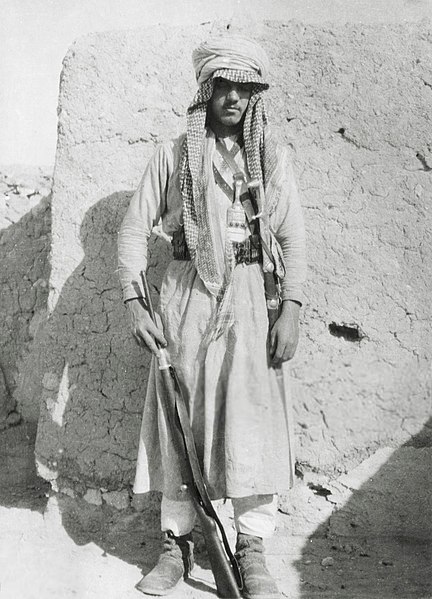The Ikhwan, commonly known as Ikhwan man ata'a Allah, was a religious militia made up of traditionally nomadic tribesmen which formed a significant military force of the ruler Ibn Saud and played an important role in establishing him as ruler of most of the Arabian Peninsula in the Kingdom of Saudi Arabia.
Hand-painted image in January 1930 of the Sheikh of the Mutair tribe and one of the most prominent leaders of the Brotherhood Faisal bin Sultan Al-Duwish
Portrait of the Sheikh of the Otaibah tribe and one of the most prominent leaders of the Brotherhood Sultan bin Bajad bin Humaid
An Ikhwan man wearing a keffiyeh or head covering
Two men from Ikhwan in al-Hasa Photographed by Paul Harrison
Abdulaziz bin Abdul Rahman Al Saud, known in the West as Ibn Saud, was an Arab political and religious leader who founded Saudi Arabia – the third Saudi state – and reigned as its first king from 23 September 1932 until his death in 1953. He had ruled parts of the kingdom since 1902, having previously been Emir, Sultan, and King of Nejd, and King of Hejaz.
Ibn Saud
His father, Abdul Rahman bin Faisal, Emir of Nejd.
Ibn Saud's signature in a document to Eqab bin Muhaya
Ibn Saud with Percy Cox and Gertrude Bell during the Arab Revolt, Basrah, 1916








